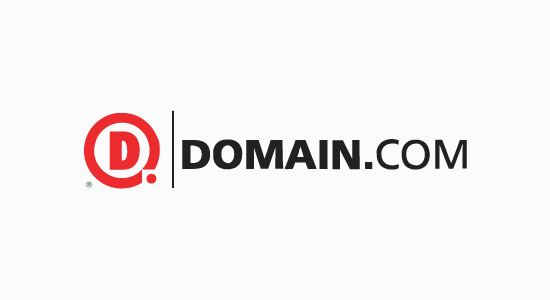There are many new domain extensions are available for registration and often promoted by domain registrars to beginners.
Many of our users asked if they should use such a new domain extension for their website?
Apart from the popular dot-com extension, you have the option to choose from many new domain name extensions.
Here, we’ll answer the question: Should you choose new domain extensions for your website?
And what are the pros and cons of using a new domain extension?

What Are Domain Extensions?
Domain extensions or TLDs are the last part of a domain name. These are the letters that appear after the dot and to the right side of the domain name.
For example, WPBeginner has a .com domain extension (wpbeginner.com), and Wikipedia has a .org domain extension (wikipedia.org).
To learn more about the domain name system, see our beginner’s guide on what a domain name is and how domains work.
The first domain extensions were .com, .net, and .org. They are still the most popular domain extensions.
As time passed, new domain extensions were introduced. These included country-specific domain extensions like .co.uk or .com.de and generic extensions like .travel, .app, .mobi, .photography, and more.
Today, there are hundreds of domain extensions available that can be used for starting a website.

You can register a domain name from a domain name registrar.
We recommend Domain.com. They are one of the best domain registrars on the market, offering competitive rates, domain extensions, and easy-to-use domain management tools.

Some registrars offer more variety of domain extensions than others. The cost for each domain extension will vary, and some new ones are quite expensive compared to the popular .com, .net, and .org extensions.
Once you have purchased a domain name, you’ll still need web hosting to build a website. For more details, see our beginner’s guide on the difference between domain name and web hosting.
Should You Choose a New Domain Extension for Your Website?
Choosing a domain name with the right domain extension is crucial for the success of your website. The extension part of your domain affects your branding.
The new domain extensions are not as popular because most people are unfamiliar with them. Some users may not even recognize them as a proper domain name.
The .com domain extension has become synonymous with the internet. Nearly 46% of all registered domain names are .com domains. Even most smartphones have a default .com key for quick typing.

This is why we recommend using the .com domain extension for most websites.
The .com domains are easy to remember. Most internet users instinctively use .com when entering a website address in their browser.
Due to the popularity of .com domain names, they are easier to brand, promote, and help you grow your business.
A .com domain name can be used to create almost any website and business. This flexibility allows you to change your website’s scope or business while keeping the old brand and domain name.
Due to its familiarity, flexibility, and potential, we recommend choosing a .com domain extension for your new website.
What to Do if My Preferred .com Extension Is Not Available?
The majority of websites on the internet use a .com extension. This means there are nearly 168 Million .com domain names already registered.
This would make you feel that all the good domain names are already registered. However, plenty of clever ways exist to find a good .com domain name.
You can start by looking at our free business name generator tool. It helps you find clever business name ideas that you can use for your domain name.
- Your domain name should represent your business and what you do. For example, starplumbingservices.com is better than starservices.com
- You can add small words before or after your preferred domain name to make it unique. For example, starplumbingboston.com
- Make sure your domain name can be easily pronounced. Don’t use hyphens or numbers in your domain name.
- Take advantage of online domain name generators. These free tools will help you find domain name ideas that are still available.
If you need more help, then see our beginner’s guide on choosing the best domain name for more practical tips.
Let’s review some other popular domain extensions, their intended purpose, and what kind of websites they are suitable for.
Other Available Domain Extensions
There are hundreds of domain name extensions available. We have tried to pick up some generic and popular extensions to show you how these domain extensions are intended to be used.
When should you use the .Net domain extension?
The .net extension is the second most popular domain extension. It was intended to be used by networking businesses, internet service providers, or networks of online communities.
If you run a similar business, you can use a .net domain extension.
For more details, see our comparison of .com vs .net domain extensions.
When should you use the .Org domain extension?
The .org extension was initially launched to accompany .com and .net domain extensions. It suits non-profit organizations, charities, and religious or social awareness websites.
Some organizations use the .org extension for their non-profit activities and the .com version of the same domain for commercial activities.
If you run a similar organization, then a .org domain name would be more suitable for your website.
For more discussion on this topic, take a look at our comparison of .com vs. .org domain extensions.
When should you use the .Biz domain extension?
The .biz domain extension is an acronym for business. Similar to the .com extension, .biz is intended to be used by any business website.
Since it is a relatively new extension, chances are that you can find a good domain with .biz extension more easily than .com.
When should you use the .Info domain extension?
The .info extension is an acronym for information and can be used by information portals or similar websites.
Many companies use .info extension for their documentation, customer support, and sales queries. It can also be used by websites offering informational content.
When should you use the .Name domain extension?
The .name extension is intended for individuals to use. Individuals can look for a domain that matches their name.
People use it for small business websites, however, it is best suited for personal portfolios, email hosting, and more.
When should you use the .TV domain extension?
Technically, the .tv domain extension is a country-based TLD for websites based in Tuvalu (a tiny island nation in the Pacific Ocean). However, the domain is used by tv-related websites around the world.
You can use this domain if your website or business is about the TV industry, media, entertainment, celebrity news, and similar niches.
Many popular tv companies don’t use a .tv domain extension. For instance, HBO, CNN, CBS, and dozens more. But they might register one for a redirect or to drive traffic to a particular show.
There are dozens more domain extensions like .photography, .club, .xyz, .blog, and more. They are less common, but they give you a much higher chance to have exactly the domain name you want if it is unavailable with a .com extension.
What About Country-Specific Domain Extensions?
You should only use country-specific domain extensions if you only want to target users in that particular country.
The intended purpose of country-specific domain extensions is to be used by individuals and businesses in that region. Many such domains can only be registered if you are in that country or have a representative.
Country-specific domain extensions are great for creating multilingual websites or region-specific websites.
Some websites use country domain extensions to come up with clever ideas for their domain names. For example, bit.ly uses the domain extension for Libya, and goo.gl, the URL shortener service by Google, uses the country domain extension for Greenland.
These kinds of domain names are called domain hacks. While they look cool, you will need serious marketing skills to turn them into a recognizable and memorable brand for your users.
We hope this article helped answer the question about choosing new domain extensions for your website. You may also want to see our guide on how to make a blog with step-by-step instructions for beginners and our expert picks of the best WordPress hosting providers.
If you liked this article, then please subscribe to our YouTube Channel for WordPress video tutorials. You can also find us on Twitter and Facebook.





Syed Balkhi says
Hey WPBeginner readers,
Did you know you can win exciting prizes by commenting on WPBeginner?
Every month, our top blog commenters will win HUGE rewards, including premium WordPress plugin licenses and cash prizes.
You can get more details about the contest from here.
Start sharing your thoughts below to stand a chance to win!
Dennis Muthomi says
I agree that .com is still the best domain extension in most cases.
I have seen many examples of American audience market hesitating to purchase from sites without .com extension, likely because it is so deeply ingrained as the standard domain extension.
Dayo Olobayo says
Great article! Another thing worth adding is that irrespective of whatever extension you use, having the dot com redirect to the website is a wise business decision else you’ll still lose traffic to the business sitting on it.
Jiří Vaněk says
Regarding the top level domain, does a new type of TLD such as .online, .store, etc. have any effect on SEO? Or is it just a marketing ploy that the ending can look better?
WPBeginner Support says
There is no inherent SEO advantage for a new type of TLD, we mainly recommend .com as that is what most people are used to and if you build your site with users in mind that can indirectly help with your SEO.
Admin
Utsav says
Hi,
I have a website currently running on ‘.in’ extension but I want to move my website to ‘.com’ extension. I have already registered ‘.com’ domain. How to do this?
WPBeginner Support says
For changing your domain you would want to take a look at our article here: https://www.wpbeginner.com/wp-tutorials/how-to-properly-move-wordpress-to-a-new-domain-without-losing-seo/
Admin
Lenin Zapata says
I have registered domains
.doctor,.name,.me.It is worth noting that these do not affect SEO
Mark Shultise says
One problem with many of the newer domain names is that the spammers or using them and a lot of people like me or blocking anything that’s not a traditional domain suffix